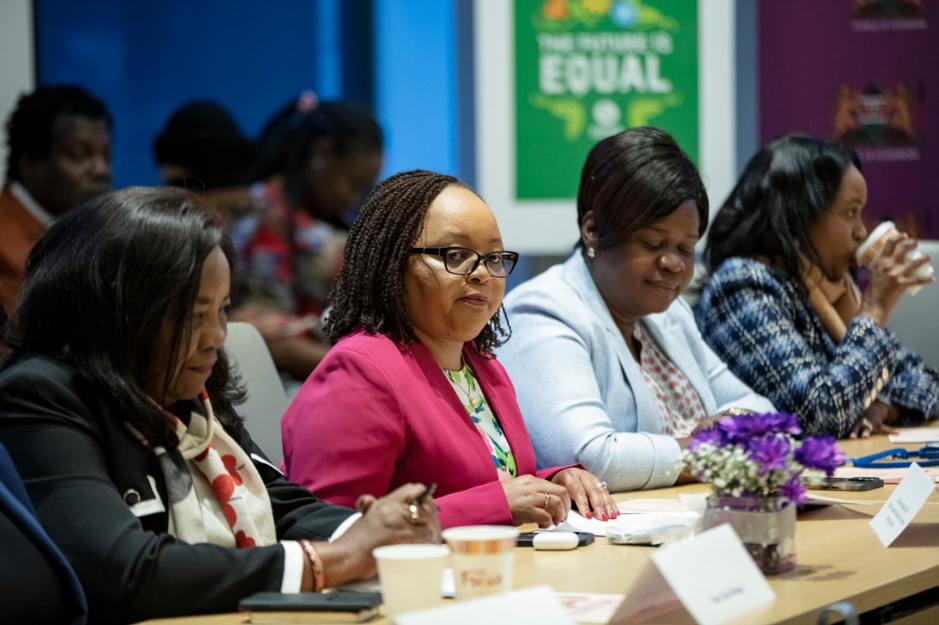While the number of female leaders in Kenya has been on the rise over the years, with seven female governors currently in office, women continue to encounter challenges in accessing and retaining leadership positions.
In response, women governors joined forces on March 7, 2024, to launch the G7 strategy for Women Governors in Kenya, which aims to empower and provide support to women leaders within the devolved structures.
The women’s governor’s caucus has now moved its strategy overseas, launching the G7 strategy in New York following the 68th annual Commission on the Status of Women (CSW68) that was also held in New York.
The launch, which was in collaboration with Oxfam USA, aims to mobilize more partners all over the world to support the implementation of the strategy.
The G7 group includes Anne Waiguru, the current Chair of the Council of Governors and Governor of Kirinyaga, alongside Wavinya Ndeti of Machakos, Kawira Mwangaza of Meru, Susan Kihika of Nakuru, Fatuma Achani of Kwale, Cecily Mbarire of Embu, and Gladys Wanga of Homabay.
All the members of the group, in addition to Idah Odinga-wife of former Prime Minister Raila Odinga, were present at the launch which was held at Bahai International Community Center.
The women leaders came together to encourage and support women who are looking to participate and take up leadership positions, as well as help them in remain relevant and responsive to community needs. This is aimed at enhancing the political influence and leadership of women leaders not only at the county level but at the national level as well.
According to Governor Waiguru, there is a need to accelerate bridging the gap in top leadership positions.
“Women are not just beneficiaries of development efforts but are powerful agents of change, catalysts for economic growth and pillars of societal stability thus the need to invest in their empowerment,” she said.
- Women in leadership: What future in a patriarchal society?
- African women lawyers: numbers are up but leadership obstacles abound
The G7 strategy will look to model women leaders as champions of inclusive political representation and participation. Through it, the group will establish a strong communication strategy, train potential and able leaders to take up more top positions, and develop a mentorship program to help women leaders at the grassroots level.
One of the main aims of the group is to increase the number of female leaders in Kenya. Currently, there are a total of 21 female senators in the 67-member House, while the National Assembly only has 80 members who are women out of the 349 lawmakers.
President William Ruto, who was present at the launch of the strategy in Kenya, commended the move and assured his commitment to gender equality. He assured the group that he will continue to support alternative gender representation at the topmost leadership positions as one of the means of attaining the one-third gender representation threshold.
“We as a government shall push for the implementation of recommendations from the National Dialogue Committee’s (NADCO) report that seeks to achieve the elusive gender principal,” he said. The report recommends that the Elections Act 2011 be amended to provide for submission of party lists that comply with the two-third gender principle.
Additionally, it also recommends the need to provide for the establishment of the Women’s Inclusion and Political Participation Fund for purposes of financing education and training, mentorship and capacity building, including support for women seeking elective positions.
The group aims to grow and increase its number from G7 to G16 as well as expand to a pan-African movement that inspires other countries to join and encourages women to take leadership.


